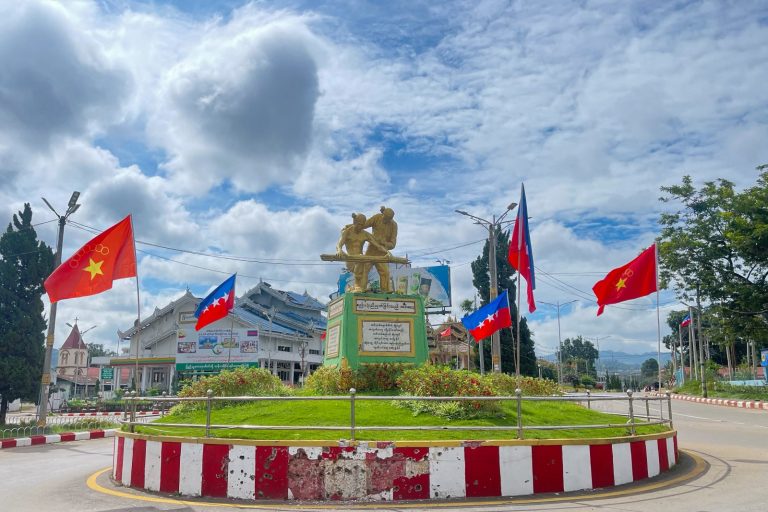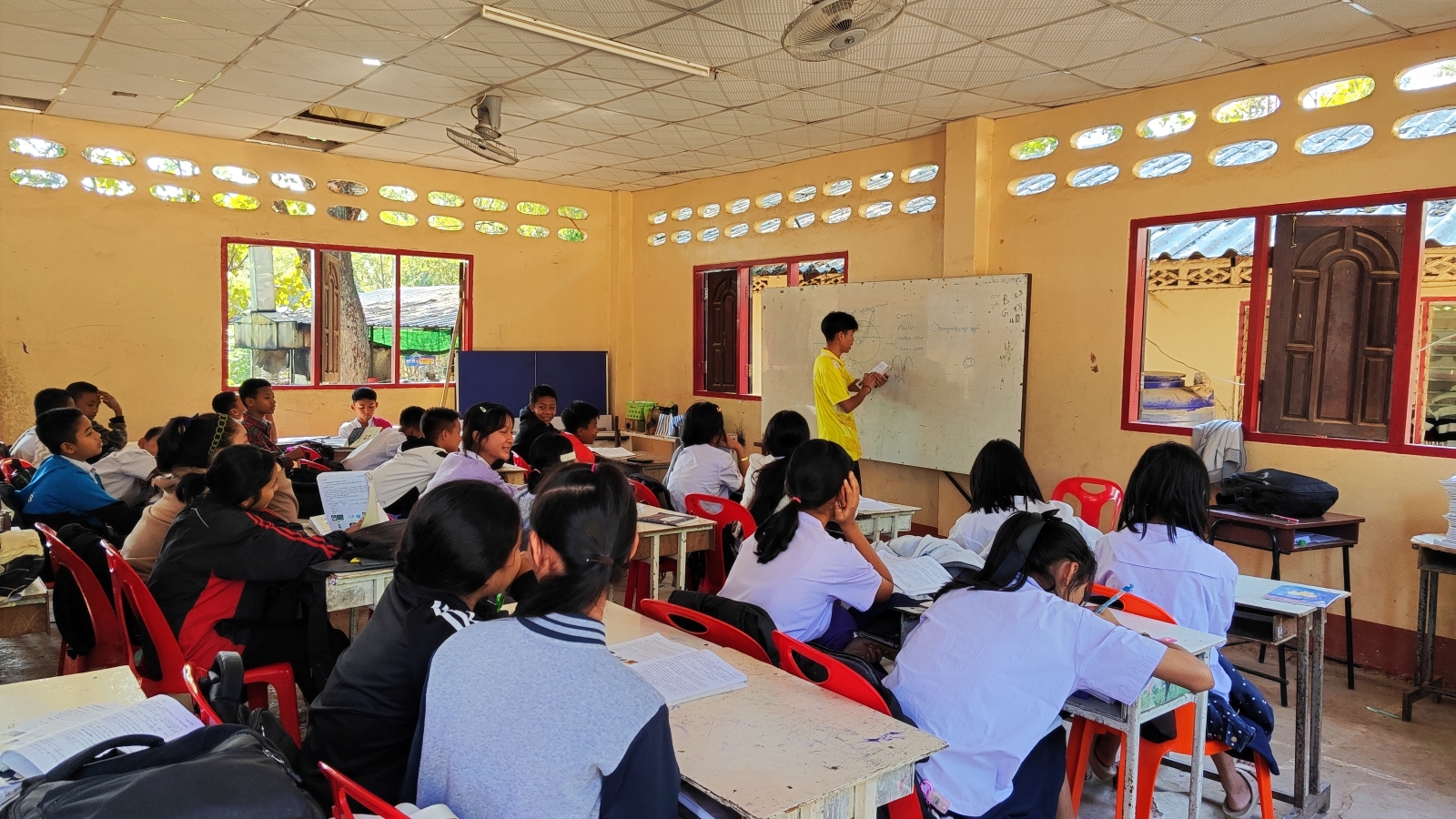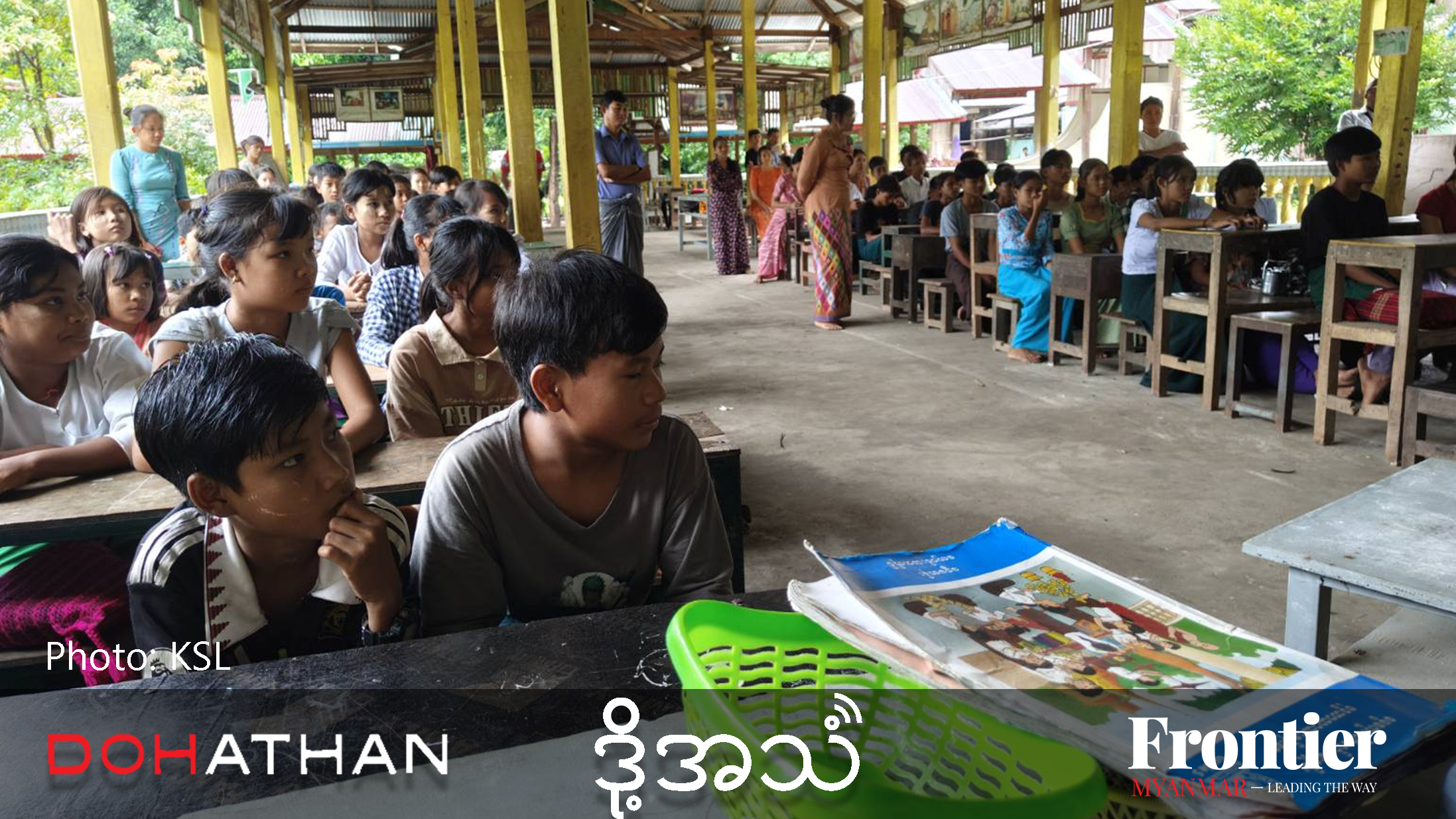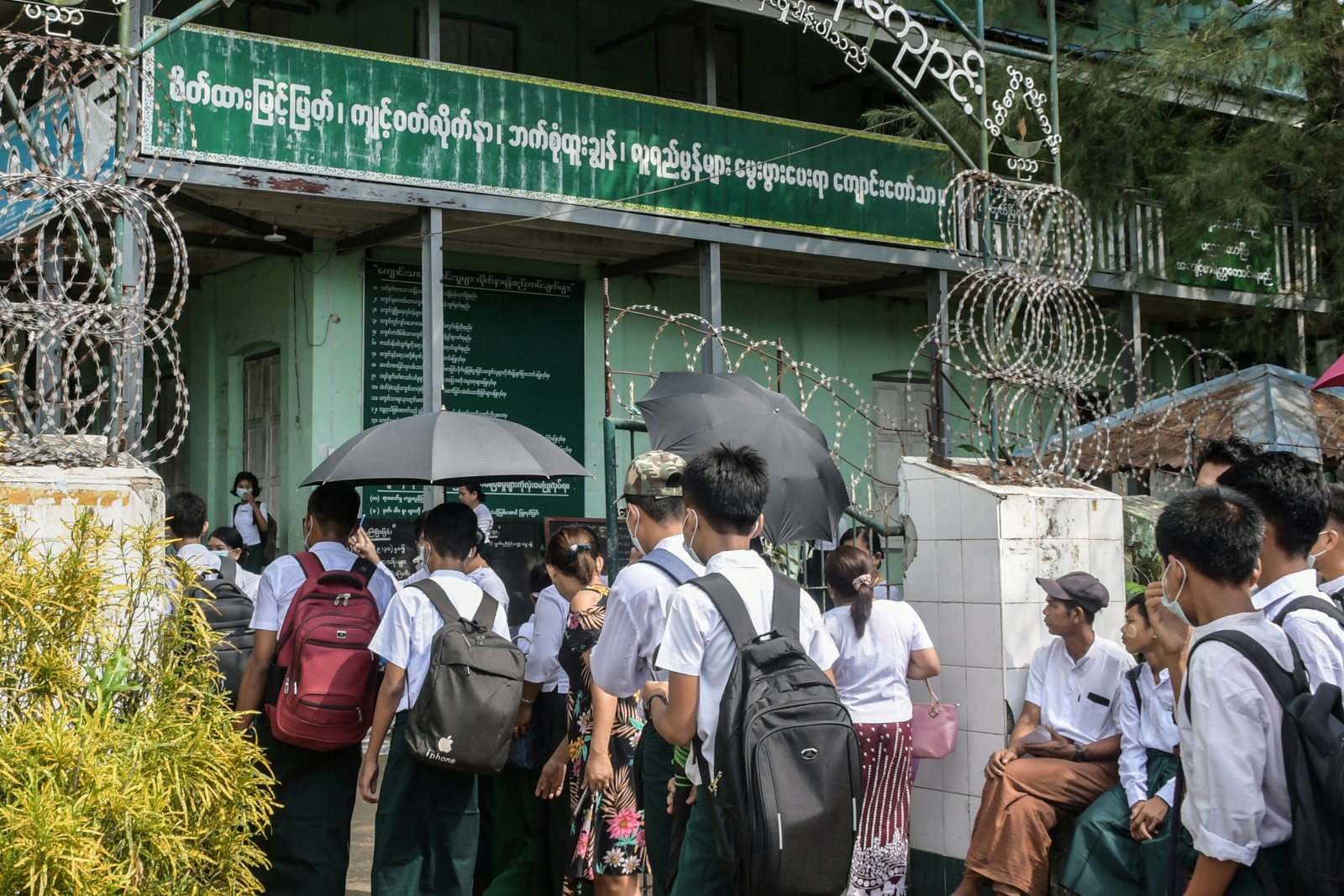As election fever rises in Myanmar, student activists from several generations are contemplating their roles in the political area. After years and in some cases, decades, of activism – for which many served prison terms – they face a tough decision: whether to push for change inside or outside parliament.

A member of the All Burma Federation of Student Unions at a protest in Mandalay on March 21 against the police crackdown at Letpadan earlier that month. (Ye Aung Thu / AFP)
For some who had hoped to seek change from within the parliamentary system, there has been disappointment.
Former student leader and prominent member of the 88 Generation Peace and Open Society group, Ko Ko Gyi, said last month he would seek election under the banner of the opposition National League for Democracy. He was among 18 88 Generation members who applied to run for the NLD in the November 8 election, but there was bewilderment at the bombshell decision by the party’s central election committee to exclude him from its list of candidates.
The NLD election committee, chaired by party leader Daw Aung San Suu Kyi, approved only one candidate from the 88 Generation, the quietly-spoken Ko Pyone Cho.
Among the younger generation of student activists are many who played leading roles during the protests in 2007 known as the Saffron Revolution and are members of the All Burma Federation of Student Unions.
Support more independent journalism like this. Sign up to be a Frontier member.
Most members of the younger generation of student leaders, including the dozens languishing in Thayawaddy Prison since their arrest during the violent police operation at Letpadan in March, are against participating in the election because of dissatisfaction with the constitution.
“We feel that participating in the elections with a political party will legitimise the 2008 Constitution general secretary of the ABFSU Ma Phyoe Phyoe Aung, 26, said on the sidelines of her trial at Thayawaddy court on August 4.
She singled out for criticism Article 436 of the constitution, which gives the military appointees who hold 25 percent of the seats in parliament an effective veto over charter reform because it requires the support of more than 75 percent of MPs.
“This constitution is impossible to change,” said Ma Phyoe Phyoe Aung.
She was among about 70 activists who went on trial at Thayawaddy court in May on charges including unlawful assembly, rioting and causing injury to government workers arising from the crackdown at Letpadan.
Ma Phyoe Phyoe Aung is convinced that she and her “comrades” are on trial because the government wants them off the streets during the election campaign. “They are doing this for some specific reason,” she said, referring to the trial and its lengthy proceedings.
ABFSU spokesperson Ko Aung Nay Paing said the group agrees that the election is crucial for the transition to democracy.
“But it should be free and fair and everyone should be able to participate; this election does not seem like it will be that way,” he said, adding that one of the group’s main concerns is the jailing of students and rise in the number of political prisoners.
Although unwilling to join political parties, the campaign against a proposed education law earlier this year saw student unions use a strategy that combined activism with alliances to exert pressure in the hluttaws. Student groups joined forces with a prominent member of the NLD, Dr Thein Lwin, who had a leading role in National Network for Education Reform.
They also worked closely on the issue with the outspoken Daw Nyo Nyo Thin, an independent MP in the Yangon regional assembly. The protest marches to Yangon that ended under a frenzy of police batons at Letpadan had succeeded in pressuring the government to discuss changes to the law.
The students’ Democracy Education Initiative Committee and the NNER participated in government-sponsored talks aimed at finding a negotiated solution. Undaunted by the crackdown at Letpadan and the failure of the education law passed in June to include changes they said had been agreed in the government-sponsored talks, students remain determined to achieve their objectives.
Ko Aung Nay Paing said it was imperative to continue the campaign for education sector reform.
“We believe that we will get what we want only if the public is involved and participates,” he said.
Student activists were disappointed by the lack of support from the NLD for the education reform campaign. Daw Aung San Suu Kyi had urged the students to negotiate rather than protest.
They were also baffled by the NLD’s decision to publicly censure Dr Thein Lwin in February after he participated in a meeting on education reform in Nay Pyi Taw as a member of the NNER. An NLD statement said he had violated party rules for involvement in another organisation without the permission of the central executive committee.
Dr Thein Lwin was not chosen as an election candidate by the NLD. Neither was Daw Nyo Nyo Thin, despite what she said was a request in January to stand for the party.
“The silence of the NLD after the students were beaten [at Letpadan] was like it approved of what the government did,” Ko Aung Nay Paing said.
Not surprisingly, efforts by students to find common ground with Daw Aung San Suu Kyi and her party have proven difficult. The NLD leader met students at her Yangon residence in June at an inconclusive meeting to discuss education reform. The ABFSU boycotted the meeting because some of its members remained behind bars.
Ko Aung Nay Paing said the ABFSU had no plan to support any party in the November 8 election.
“In fact, the basic principles of the student union say that it must not be influenced by any party or organisation,” Ko Aung Nay Paing said.
“The NLD now focusses mainly on national reconciliation while neglecting the needs and concerns of the people,” he said.
“But we approve of some political parties like the New Society Party, and also the ethnic parties need to participate,” he said, while re-emphasising that the ABFSU has no policy of voting for any particular party.
“It is not the position of the student union to approve certain parties for the vote and the students will all vote as individuals.”
Student unions have played a critical role in political movements in Myanmar since the struggle for independence. General Aung San, the father of independence, was among the many prominent national leaders with a background in student politics and activism.
Student leader Ko Sithu Maung, a leading member of the Confederation of University Student Unions who did not participate in the protests for education reform, was also rejected as an election candidate by the NLD. He told Frontier he did not wish to comment on the NLD central election committee’s decision.






